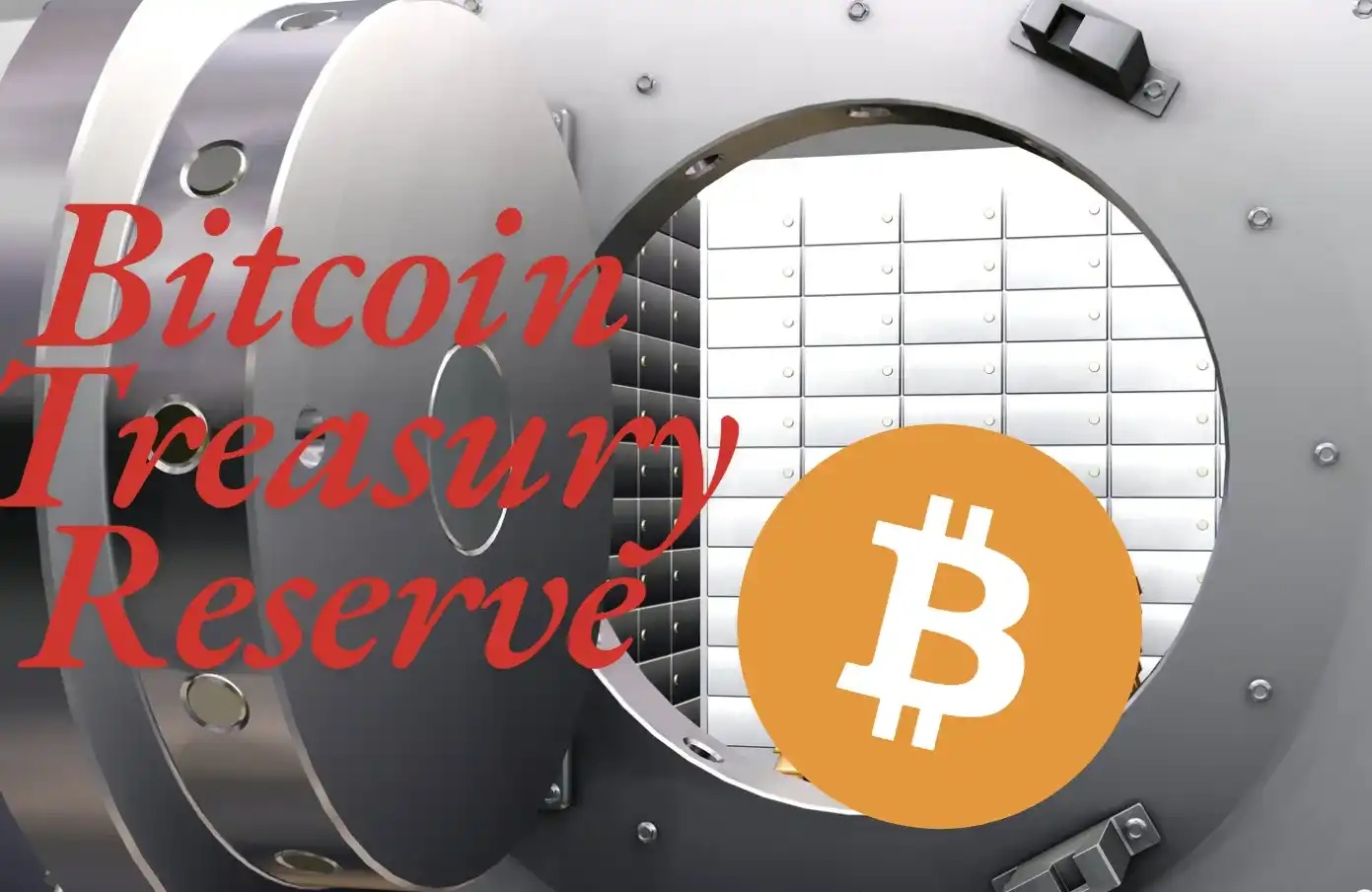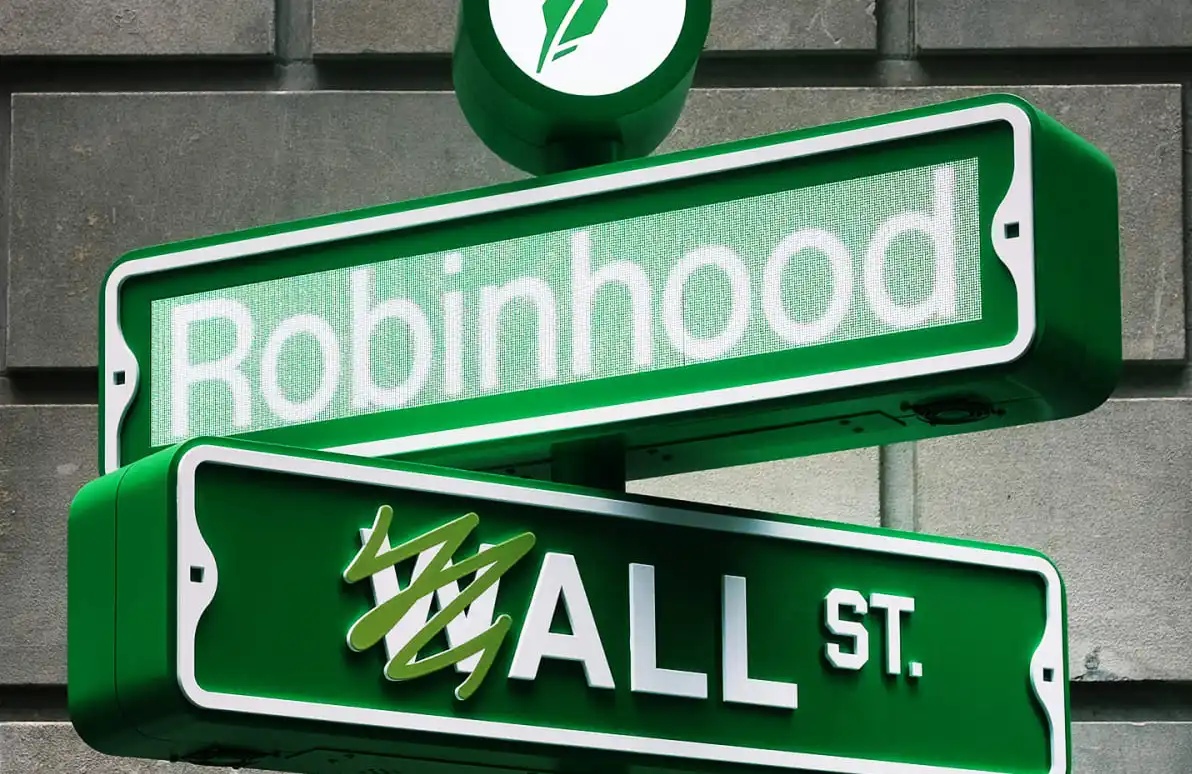Tokenization of US Stocks Heating Up, Robinhood Rumored to Build Its Own Layer 2 Solution to Seize the Opportunity
Original Title: "Robinhood May Turn to L2, as Stock Tokenization Welcomes a New Player"
Original Source: DeepTech TechFlow
As the USD stablecoin gradually gains market attention, companies inside and outside the cryptocurrency industry have started to see US stocks as the next target.
At the end of May, the US cryptocurrency exchange Kraken announced that it would offer tokenized popular US stocks to non-US customers; on June 18, Coinbase's Chief Legal Officer Paul Grewal revealed that the company is seeking SEC approval for its "Stock Tokenization" service.
Stock tokenization has gradually become a notable business.
And now, this business may have welcomed a new player — the well-known US internet stockbroker, a key force in the retail investor community, and the GameStop short squeeze movement — Robinhood.
Previously, two sources familiar with Robinhood told Bloomberg that they are developing a blockchain-based platform that will allow European retail investors to trade US stocks.
According to sources, the technology choice for this platform may be Arbitrum or Solana, the specific partner is still pending, and the protocol is not yet finalized.
This news can be interpreted in at least two ways.
Firstly, Robinhood may directly integrate Arbitrum L2 into this new platform that allows European users to trade US stocks, as the underlying layer for its blockchain transactions;
Secondly, the more likely scenario is that Robinhood plans to leverage Arbitrum's Arbitrum Chains feature to develop its proprietary L2 chain based on Arbitrum's technology stack (Rollup protocol, EVM compatibility, etc.).
Whichever the final scenario may be, market sentiment has already been boosted.
This also means that for the business of US stock tokenization, Robinhood may be developing its own exclusive L2, which is more conducive to on-chain settlement for this business and specialized operations.
At the upcoming EthCC conference in Cannes on the 30th, Robinhood will also make a significant announcement at 17:00 local time (23:00 Beijing time), leading to speculation from outsiders about its involvement in developing L2 and US stock tokenization business.
Meanwhile, A.J. Warner, Chief Strategy Officer of Offchain Labs, the company behind Arbitrum, will also be attending, giving everyone more room for speculation on a simultaneous announcement.
Recently, the price of ARB, which has been somewhat dull, saw a 24-hour surge exceeding 20%, placing it at the forefront of the cryptocurrency gainers list.

More suggestive is the comment "Stay tuned" by Robinhood's European region X account under a thread discussing the conference agenda, in conjunction with Bloomberg's report on offering US stock trading in the European region, raising the likelihood of an announcement of this feature.
Everything Is Traceable
Robinhood's concept of tokenizing US stocks is not a sudden idea.
In January of this year, CEO Vlad Tenev criticized the current US regulations, stating that the US has not yet provided a clear framework and rules for registering security token offerings, hindering the promotion of tokenization products.
Moreover, in a podcast in March, Tenev directly stated, "Right now, if you're outside the US, it's very difficult to invest in a US company."
This also struck a chord with most non-US investors who are interested in US stocks but face challenges due to their location, as they urgently need a smoother way to trade US stocks.
At the same time, Tenev also mentioned at the time that they were considering tokenizing securities, noting that this would be part of a broader push to integrate digital assets into the financial system.
Looking at it now, all the signs were there,
Currently, Robinhood's EU customers can only trade cryptocurrencies, and the company obtained a brokerage license in Lithuania last month, allowing it to offer stock trading and other investment services in the EU.
Furthermore, Robinhood signed an agreement to acquire the cryptocurrency exchange Bitstamp in June last year. Upon completion of the transaction, Robinhood will be able to use Bitstamp's MiFID Multilateral Trading Facility (MTF) license to offer crypto-related derivatives.
With the license obtained, regulations complied with, the next consideration would be selecting which chain to implement.
Why Arbitrum Could Be the Choice?
From a technical perspective, Arbitrum is a fully EVM-compatible L2 solution, which means Robinhood can seamlessly migrate its existing Ethereum smart contracts and development tools without significantly altering its tech stack.
The EVM compatibility can be seen as a key factor for big fintech companies like Robinhood to quickly onboard to the blockchain. If they can leverage Ethereum's vast developer community and existing infrastructure, who would leave it aside?
Furthermore, looking deeper, Arbitrum's Optimistic Rollup technology has also struck a balance between transaction confirmation time and cost; in contrast, ZK Rollup has higher cost overheads and relatively slower transaction confirmation times. As Robinhood is a platform that needs to handle large-scale user transactions, it is more likely to prioritize Arbitrum's mature technology and lower development barriers.
On the other hand, from a business perspective, this choice also avoids Coinbase.
Base is Coinbase's L2 solution, also based on OP technology stack, but evidently because Robinhood competes with Coinbase in its core business, it is less likely to directly run its tokenized stock business on Base.
Arbitrum offers the option of custom L2 chains (Arbitrum Chains), which allows Robinhood to differentiate itself from Base.
One piece of information you might overlook is that Robinhood and Arbitrum actually have past collaboration experience.
As early as ETHDenver in 2024, Robinhood announced a collaboration with Arbitrum to simplify the process for users to access Arbitrum through the Robinhood Wallet.

This indicates that the two parties already have a foundation of technical integration and a strategic alliance, and Robinhood may choose to continue this partnership, utilizing Arbitrum's existing technical support and brand impact to further expand its business.
Imitating Base, Distinguishing from Base
Although the news of Robinhood building its own L2 using Arbitrum has not been officially confirmed, it has already sparked widespread discussion in the crypto community.
One of the most acute criticisms is that this approach is seen as a simple imitation of Base.
Base, launched by Coinbase, follows an open strategy, inviting external developers to build DApps to expand the ecosystem and attract users and assets. Part of Base's success is attributed to this open ecosystem (such as projects like Aerodrome and Uniswap migrating to or building on it).
If Robinhood were to also build an Arbitrum-based L2, open to external developers to expand the ecosystem and explore more use cases for on-chain representation of real-world assets, despite the different technological stack, its business strategy would already bear a high resemblance to Base's.
A key factor that easily gives the impression of this "imitation" is the lag.
Let's not forget that Coinbase launched Base as early as the end of 2023, while Robinhood has only just announced its Arbitrum L2 plan. This time gap makes Robinhood's actions appear to be a "me-too" response to Base's success rather than an original strategy.
In the traditional business realm, fintech companies tend to replicate proven patterns, which is indeed a safer strategy; but imitating Base implies that Robinhood will be in direct competition with Coinbase, which has already established a first-mover advantage through Base. If Robinhood wants to overtake, it will need to invest more resources and effort.
Well-known data platform Token Terminal also provided Robinhood with a clear direction, which is to amplify its advantage as an internet broker and take a path opposite to Base, that is, a "closed ecosystem" approach:
Do not invite external app developers to join its L2; instead, migrate all of Robinhood's existing financial products (such as trading or investment tools), assets, and users to the chain, allowing users to directly operate on-chain rather than relying on traditional centralized systems.

This idea is more Crypto Native, combining Robinhood's existing customer base with purely on-chain gameplay, but a more aggressive approach also means greater resistance, and Robinhood may not necessarily follow this path.
However, if we step out of Robinhood to observe the entire Ethereum ecosystem, some voices believe that this would exacerbate the fragmentation of Ethereum's L2.
Ethereum L1 has already lost a lot of its initiative in the current state of the crowded L2 ecosystem. Whether the performance is good or not is secondary. What's more important is the thorough marginalization and channeling. It's easy to build a dedicated L2, but reviving Ethereum's dominance is difficult.
In the end, what choice Robinhood will make, we may get the answer after today's ETHcc.
Welcome to join the official BlockBeats community:
Telegram Subscription Group: https://t.me/theblockbeats
Telegram Discussion Group: https://t.me/BlockBeats_App
Official Twitter Account: https://twitter.com/BlockBeatsAsia
 Forum
Forum OPRR
OPRR Finance
Finance
 Specials
Specials
 On-chain Eco
On-chain Eco
 Entry
Entry
 Podcasts
Podcasts
 Activities
Activities









